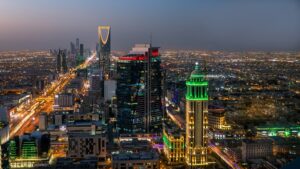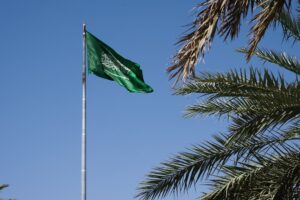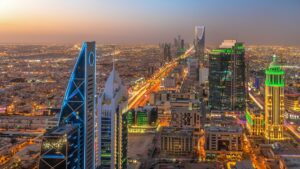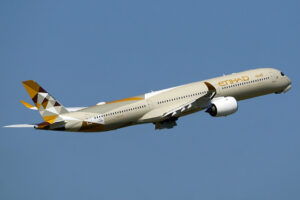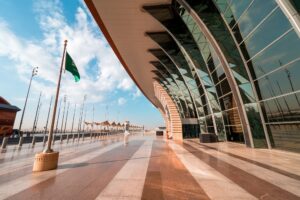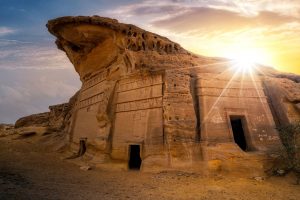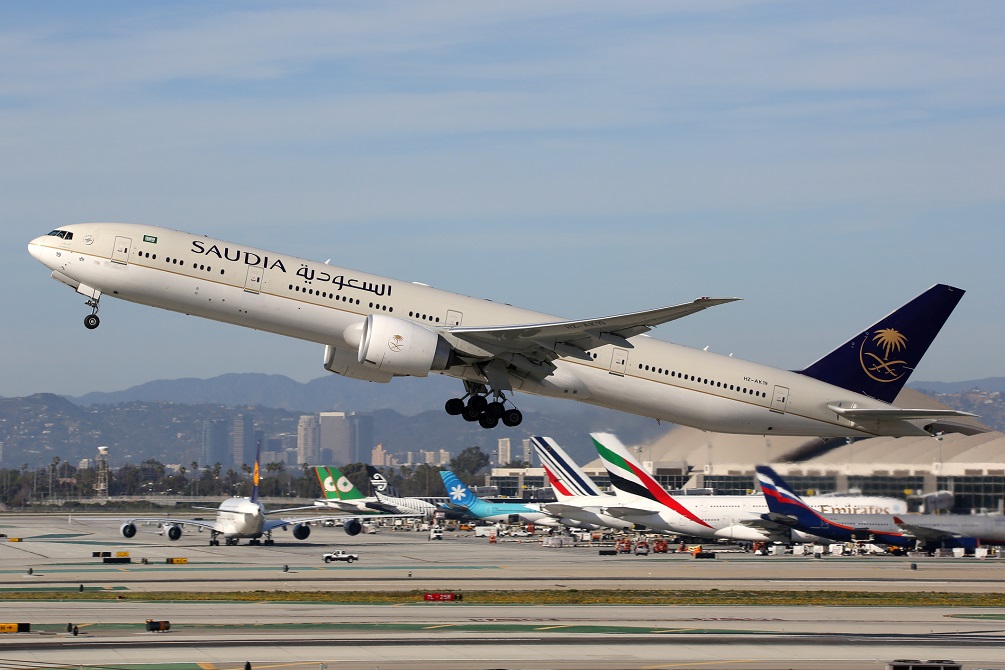Saudi Arabia
Scale crimson sand dunes shimmering from the rising sun's glow at dawn or take a hike to the Edge of the World.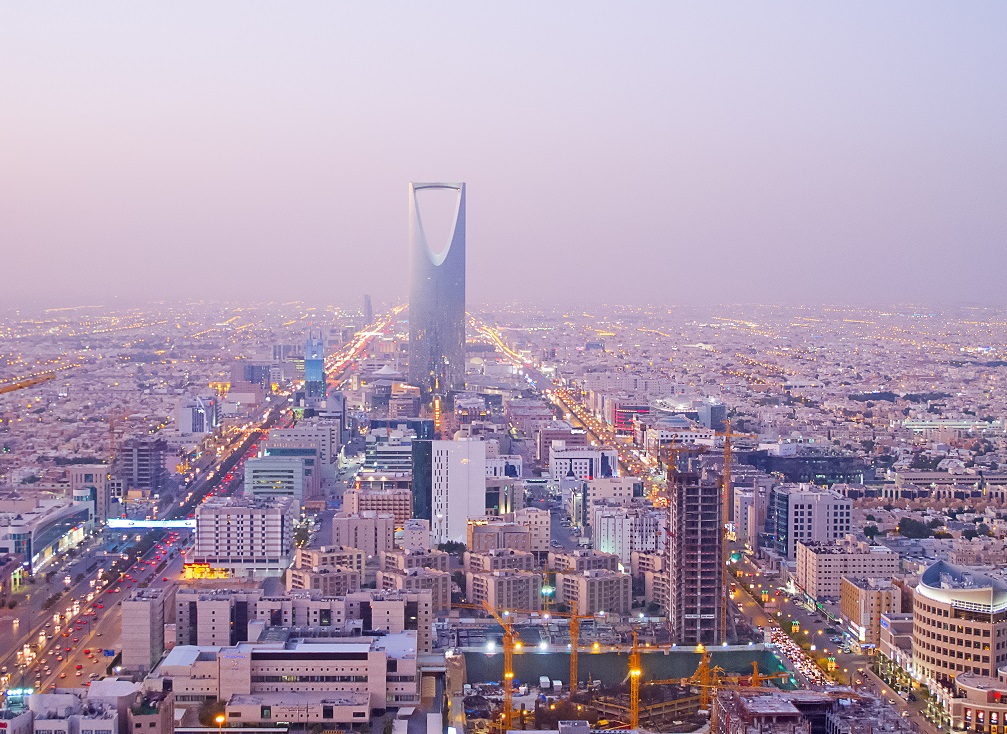
Few people speak about traveling to Saudi Arabia because they may be unaware of the revolutionary transformation in the Kingdom’s tourism policy in recent years.
In late September 2019, the Kingdom started issuing visas to tourists for the first time in its history, making a holiday in Saudi Arabia an option for many vacationers.
Before 2019, leisure tourists were rarely admitted into Saudi Arabia. The exception, before that time, were those traveling for business, the Hajj and Umrah pilgrimages in the holy cities of Medina and Mecca, and expatriates.
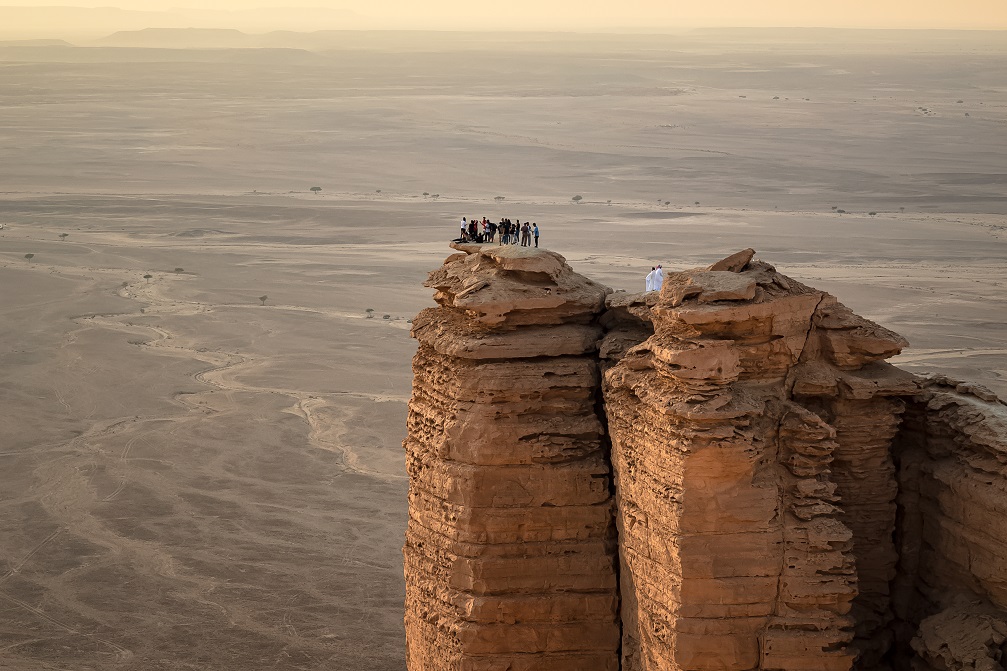


The KSA resides in the southwestern region of the Asian continent. It’s nestled between the Red Sea in the west, the Persian Gulf and the United Arab Emirates (UAE) in the east, and the State of Kuwait and the Sultanate of Oman in the north and south.
Saudi Arabia occupies the majority of the Arabian Peninsula and is 95 per cent desert. The Kingdom’s renowned Empty Quarter, the Rub’ al-Khali desert, is the world’s largest sand desert occupying a quarter of the country’s southern area. The Hijaz and Asir mountains occupy the peninsula’s western zone, separating the country’s central regions, where Riyadh lies, from the Red Sea and the Tihama coastal plain.
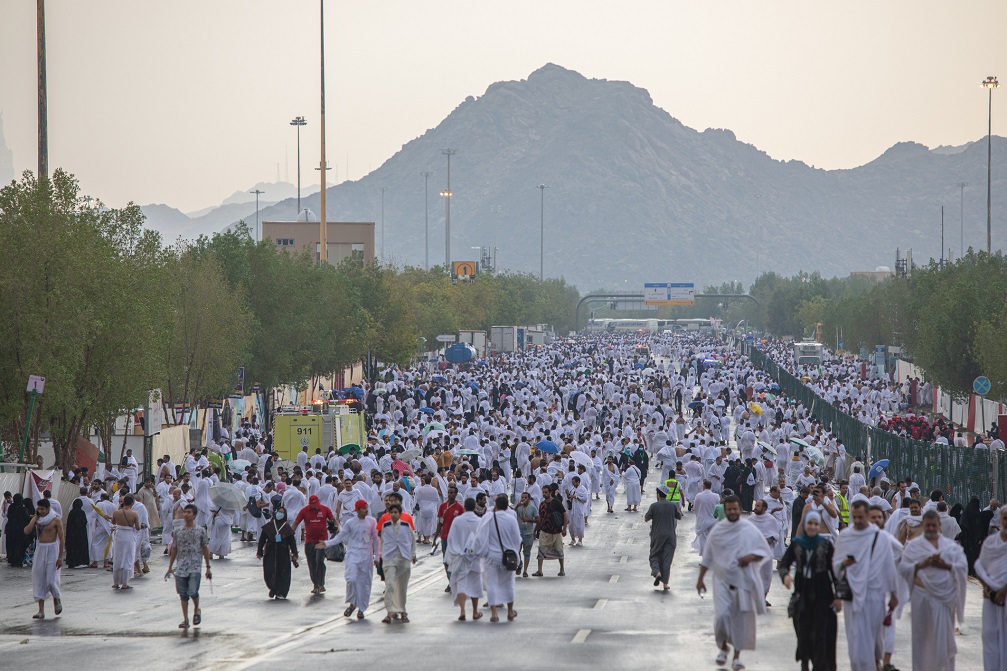


Saudi Arabia has a desert climate; therefore, temperatures can be high during certain seasons. Despite the heat, and regardless of what time of year you visit Saudi Arabia, you can have a memorable vacation. Depending on when you book your trip, this is what you can expect:
- Mid-June to Mid-September: It is summer in the Kingdom, and daytime temperatures can average 40 degrees Celsius. Fear not for dawn and the lengthy dusk is balmier.
- Mid-September to Mid-December: As a much-needed reprieve, autumn comes around. Gentler weather presides over the Kingdom’s northern regions and southwestern highlands.
- Mid-December to Mid-March: Travelers have dubbed winter as the ideal time to visit Saudi Arabia. You can fully explore the Kingdom, and you might get the chance to see snowfall in the mountains in the north.
- Mid-March to Mid-June: Spring in the Kingdom brings brisk weather and cooler night-time temperatures. Rainfall is at its peak, so do not forget to pack a rain jacket.
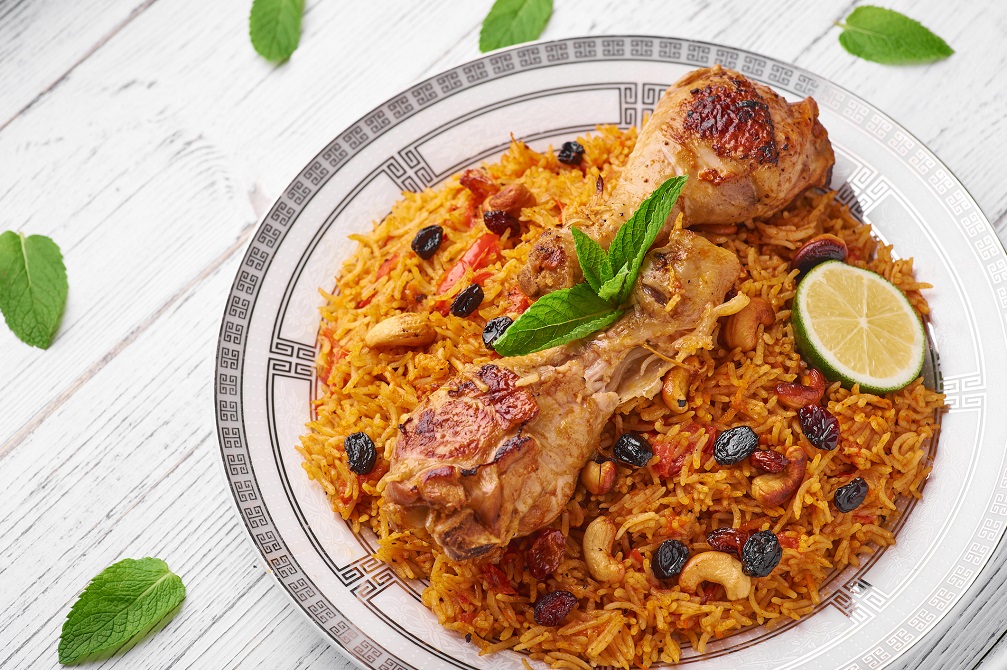


Saudi Arabian meals have a rich history. You may find that cuisine differs from one region to another.
Traditional food in Saudi Arabia reflects the country’s legacy as an ancient trade centre and the nomadic lifestyle of desert dwellers whose diet consisted of camel’s milk. Their meals are spicy, flavourful and aromatic, consisting of everyday food items such as rice, seafood and yoghurt. Meat is a significant part of the local diet, but vegetarians and vegans can find scrumptious meals in Saudi Arabia as well.
Traditionally, meals are served on large platters and eaten by hand. It’s customary to eat with your right hand, as the left hand is considered ‘unclean’ in the Muslim religion.
Dates have been a nutritious staple of the Saudi diet for centuries as well and the Kingdom is the third-largest producer of nutritious fruit.
Black tea and Arabic coffee (qahwa) are two traditional warm beverages served in Saudi Arabia that are rooted in ancestral customs. Lastly, Saudi’s have religious dietary restrictions for pork and alcohol so you have to forgo a glass of wine with dinner when travelling to Saudi Arabia.



Traditional wear is common in Saudi Arabia. You can expect to see women dressed in abayas, an ankle-length gown-like garment covering their entire body, or burqas, over everyday clothing while men can either wear a thobe, a long-sleeved robe or simply jeans and a T-shirt.
There is a law in place in the Kingdom—the ‘Public Decency Law’—that requires tourists in Saudi Arabia to dress modestly at all times. It is not required to wear an abaya or hijab (a traditional head covering) or a thobe but there are some basic requirements to keep in mind.
The law prohibits men from wearing tank tops, shorts and walking around shirtless. Pants that cover your knees and long-sleeved shirts are recommended.
Although travelling to Saudi Arabia as a woman no longer bears strict rules, doing away with the compulsory requirement to wear an abaya in public, it is recommended to invest in one, considering the majority of local women wear them.
You can get an abaya in any colour you like and wear whatever underneath. A headscarf is also not mandatory but it can take eyes off you when roaming around in public.



The KSA’s national currency is the Saudi Riyal (SAR), of which there are both banknotes and coins.
Banknotes come in denominations of five riyals, ten riyals, 50 riyals, 100 riyals and 500 riyals while coins are in one riyal, two riyals, 50 halala, 25 halala, ten halala, five halala, and one halala.
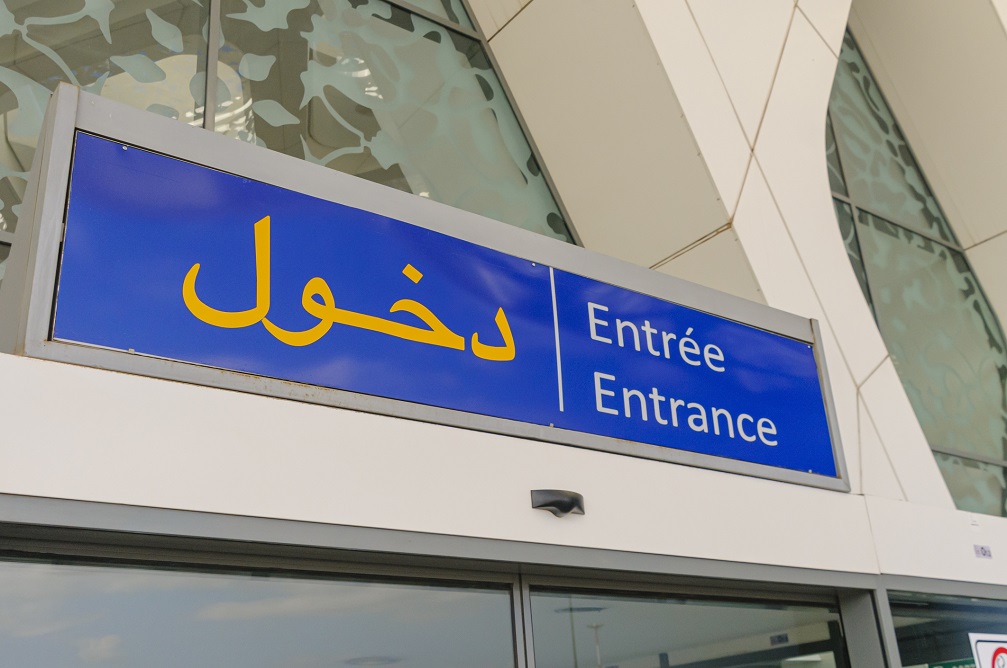


The official language of Saudi Arabia is Arabic. Although Arabic is the primary language, some locals speak English.
It is wise to learn a few phrases in Arabic before traveling to Saudi Arabia. Locals perceive interactions in Arabic as a sign of respect and speaking the native language can help strengthen the connections you make.
Here are some common phrases in Arabic that can make exploring Saudi Arabia easier:
- Hi/Hello – Salam Alaykum
- Thank You – Shukran
- Please – Min Fdlek
- How Much? – Be Kam?
- Where is x – Fen x
- Left – Yasar
- Right – Yameen
- Straight – Alatool



As a guest in the Kingdom, you will want to be respectful of the culture and aware of local customs. Knowing how to act like a local can make exploring Saudi Arabia a delight.
As an act of hospitality and honor, Saudi’s always serve food to visitors in their homes, which most people would consider a feast. When having guests over, serving coffee or tea is also regarded as a ceremonial act of kindness and generosity. An offering of dates is customary as well in Saudi Arabia when people visit your home or office.
If a local offers you a small cup of tea or Arabic coffee with dates and sweets, it’s expected of you to take one as a gesture of thanks and respect.
Apart from these traditional customs, there are some other matters to bear in mind before traveling to Saudi Arabia. During prayer times, some shops will briefly close to allow for worship.
If you are around reserved areas and mosques during prayer times, to be respectful of worshippers, refrain from speaking loudly or causing any other loud distractions.
As much as we all love documenting our travels by taking photos, it’s best to be cautious in the Kingdom. If a local is in your camera’s frame, especially a woman, first ask their permission to include them in the photo. Also, refrain from taking pictures of the government and any other official buildings.
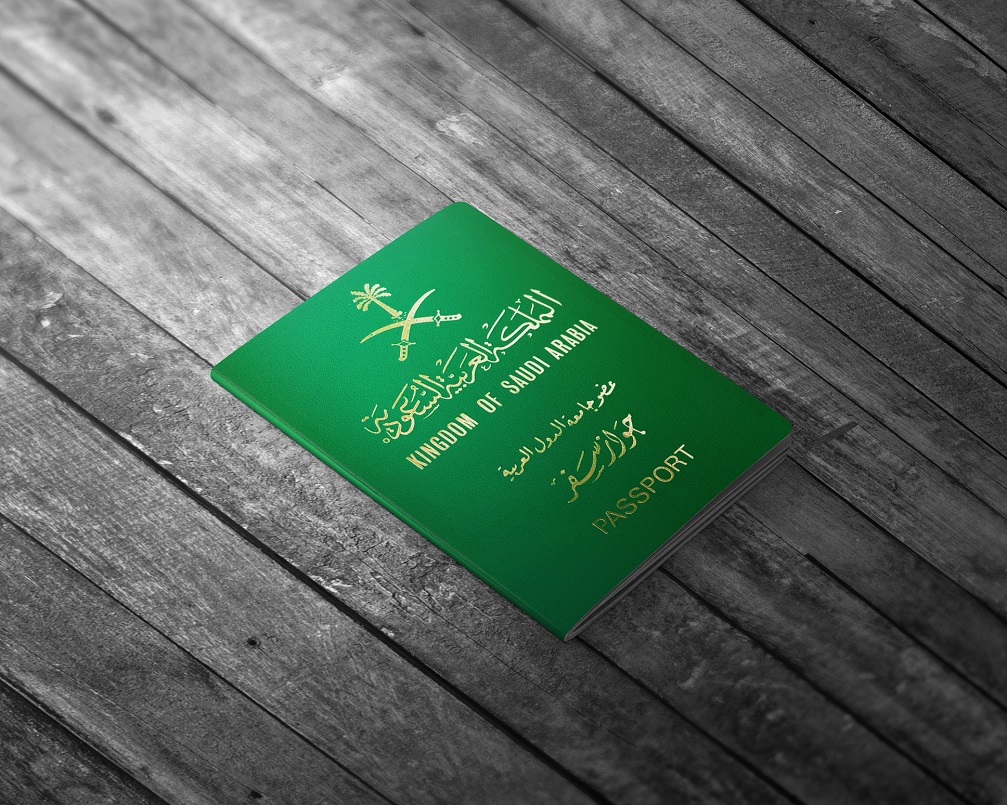


To enter the Kingdom, all visitors and pilgrims must obtain a Saudi Arabia tourist visa. You can apply for a tourist visa online or on arrival at any of Saudi Arabia’s international airports.
To apply for a visa, your passport must be valid for a minimum of 6 months from the date of entry into Saudi Arabia. Tourist visas have a validity of 360 days from the date of issue and allow you to spend up to three months within the Kingdom, with a limit of six months in total in one year. If you overstay your visa, a daily fine will be levied.
If you have Emergency Travel Documents (ETDs) from the UK, they are not valid for entry into Saudi Arabia, but they are accepted for exit from the Kingdom. And in the case of a previous trip to Israel, you may not be able to enter Saudi Arabia.



A major headache for any traveler is arriving in another country without the proper adapter or plug. UK travelers can rest assured that the Type G plugs (3 rectangular holes) they make use of are the same in Saudi Arabia. The Kingdom operates on a 230V supply voltage and 60Hz.
Saudi Arabia is one of the world’s most conservative countries, but its evolving and adapting to attract tourists from all corners of the world. It is also a country rich in culture and captivating wonders like the natural rock formations scattered around its vast deserts.
Whether you are searching for a relaxed shopping experience and beachside leisure or you want to tread dunes and hike mountains, Saudi Arabia awaits.



Few people speak about traveling to Saudi Arabia because they may be unaware of the revolutionary transformation in the Kingdom’s tourism policy in recent years.
In late September 2019, the Kingdom started issuing visas to tourists for the first time in its history, making a holiday in Saudi Arabia an option for many vacationers.
Before 2019, leisure tourists were rarely admitted into Saudi Arabia. The exception, before that time, were those traveling for business, the Hajj and Umrah pilgrimages in the holy cities of Medina and Mecca, and expatriates.



The KSA resides in the southwestern region of the Asian continent. It’s nestled between the Red Sea in the west, the Persian Gulf and the United Arab Emirates (UAE) in the east, and the State of Kuwait and the Sultanate of Oman in the north and south.
Saudi Arabia occupies the majority of the Arabian Peninsula and is 95 per cent desert. The Kingdom’s renowned Empty Quarter, the Rub’ al-Khali desert, is the world’s largest sand desert occupying a quarter of the country’s southern area. The Hijaz and Asir mountains occupy the peninsula’s western zone, separating the country’s central regions, where Riyadh lies, from the Red Sea and the Tihama coastal plain.



Saudi Arabia has a desert climate; therefore, temperatures can be high during certain seasons. Despite the heat, and regardless of what time of year you visit Saudi Arabia, you can have a memorable vacation. Depending on when you book your trip, this is what you can expect:
- Mid-June to Mid-September: It is summer in the Kingdom, and daytime temperatures can average 40 degrees Celsius. Fear not for dawn and the lengthy dusk is balmier.
- Mid-September to Mid-December: As a much-needed reprieve, autumn comes around. Gentler weather presides over the Kingdom’s northern regions and southwestern highlands.
- Mid-December to Mid-March: Travelers have dubbed winter as the ideal time to visit Saudi Arabia. You can fully explore the Kingdom, and you might get the chance to see snowfall in the mountains in the north.
- Mid-March to Mid-June: Spring in the Kingdom brings brisk weather and cooler night-time temperatures. Rainfall is at its peak, so do not forget to pack a rain jacket.



Saudi Arabian meals have a rich history. You may find that cuisine differs from one region to another.
Traditional food in Saudi Arabia reflects the country’s legacy as an ancient trade centre and the nomadic lifestyle of desert dwellers whose diet consisted of camel’s milk. Their meals are spicy, flavourful and aromatic, consisting of everyday food items such as rice, seafood and yoghurt. Meat is a significant part of the local diet, but vegetarians and vegans can find scrumptious meals in Saudi Arabia as well.
Traditionally, meals are served on large platters and eaten by hand. It’s customary to eat with your right hand, as the left hand is considered ‘unclean’ in the Muslim religion.
Dates have been a nutritious staple of the Saudi diet for centuries as well and the Kingdom is the third-largest producer of nutritious fruit.
Black tea and Arabic coffee (qahwa) are two traditional warm beverages served in Saudi Arabia that are rooted in ancestral customs. Lastly, Saudi’s have religious dietary restrictions for pork and alcohol so you have to forgo a glass of wine with dinner when travelling to Saudi Arabia.



Traditional wear is common in Saudi Arabia. You can expect to see women dressed in abayas, an ankle-length gown-like garment covering their entire body, or burqas, over everyday clothing while men can either wear a thobe, a long-sleeved robe or simply jeans and a T-shirt.
There is a law in place in the Kingdom—the ‘Public Decency Law’—that requires tourists in Saudi Arabia to dress modestly at all times. It is not required to wear an abaya or hijab (a traditional head covering) or a thobe but there are some basic requirements to keep in mind.
The law prohibits men from wearing tank tops, shorts and walking around shirtless. Pants that cover your knees and long-sleeved shirts are recommended.
Although travelling to Saudi Arabia as a woman no longer bears strict rules, doing away with the compulsory requirement to wear an abaya in public, it is recommended to invest in one, considering the majority of local women wear them.
You can get an abaya in any colour you like and wear whatever underneath. A headscarf is also not mandatory but it can take eyes off you when roaming around in public.



The KSA’s national currency is the Saudi Riyal (SAR), of which there are both banknotes and coins.
Banknotes come in denominations of five riyals, ten riyals, 50 riyals, 100 riyals and 500 riyals while coins are in one riyal, two riyals, 50 halala, 25 halala, ten halala, five halala, and one halala.



The official language of Saudi Arabia is Arabic. Although Arabic is the primary language, some locals speak English.
It is wise to learn a few phrases in Arabic before traveling to Saudi Arabia. Locals perceive interactions in Arabic as a sign of respect and speaking the native language can help strengthen the connections you make.
Here are some common phrases in Arabic that can make exploring Saudi Arabia easier:
- Hi/Hello – Salam Alaykum
- Thank You – Shukran
- Please – Min Fdlek
- How Much? – Be Kam?
- Where is x – Fen x
- Left – Yasar
- Right – Yameen
- Straight – Alatool



As a guest in the Kingdom, you will want to be respectful of the culture and aware of local customs. Knowing how to act like a local can make exploring Saudi Arabia a delight.
As an act of hospitality and honor, Saudi’s always serve food to visitors in their homes, which most people would consider a feast. When having guests over, serving coffee or tea is also regarded as a ceremonial act of kindness and generosity. An offering of dates is customary as well in Saudi Arabia when people visit your home or office.
If a local offers you a small cup of tea or Arabic coffee with dates and sweets, it’s expected of you to take one as a gesture of thanks and respect.
Apart from these traditional customs, there are some other matters to bear in mind before traveling to Saudi Arabia. During prayer times, some shops will briefly close to allow for worship.
If you are around reserved areas and mosques during prayer times, to be respectful of worshippers, refrain from speaking loudly or causing any other loud distractions.
As much as we all love documenting our travels by taking photos, it’s best to be cautious in the Kingdom. If a local is in your camera’s frame, especially a woman, first ask their permission to include them in the photo. Also, refrain from taking pictures of the government and any other official buildings.



To enter the Kingdom, all visitors and pilgrims must obtain a Saudi Arabia tourist visa. You can apply for a tourist visa online or on arrival at any of Saudi Arabia’s international airports.
To apply for a visa, your passport must be valid for a minimum of 6 months from the date of entry into Saudi Arabia. Tourist visas have a validity of 360 days from the date of issue and allow you to spend up to three months within the Kingdom, with a limit of six months in total in one year. If you overstay your visa, a daily fine will be levied.
If you have Emergency Travel Documents (ETDs) from the UK, they are not valid for entry into Saudi Arabia, but they are accepted for exit from the Kingdom. And in the case of a previous trip to Israel, you may not be able to enter Saudi Arabia.



A major headache for any traveler is arriving in another country without the proper adapter or plug. UK travelers can rest assured that the Type G plugs (3 rectangular holes) they make use of are the same in Saudi Arabia. The Kingdom operates on a 230V supply voltage and 60Hz.
Saudi Arabia is one of the world’s most conservative countries, but its evolving and adapting to attract tourists from all corners of the world. It is also a country rich in culture and captivating wonders like the natural rock formations scattered around its vast deserts.
Whether you are searching for a relaxed shopping experience and beachside leisure or you want to tread dunes and hike mountains, Saudi Arabia awaits.
Travel related news, information and inspirational articles and videos for travellers booking flights or holidays to Saudi Arabia. Ask questions about travel in Saudi Arabia and get answers from Saudi Arabia experts
NEWS
Inspiration, Information and Travel Guides
MEET THE Saudi Arabia EXPERTS
If you are looking to book a holiday to Saudi Arabia or needs some help and advice planning travel to Saudi Arabia then contact one of the UK based independent travel agents that specialise in Saudi Arabia itineraries.
FEATURED VIDEOS
Your Travel Questions Answered
Ask any travel related question and get an answer from one of our experts that will provide you with an answer from their personal experience
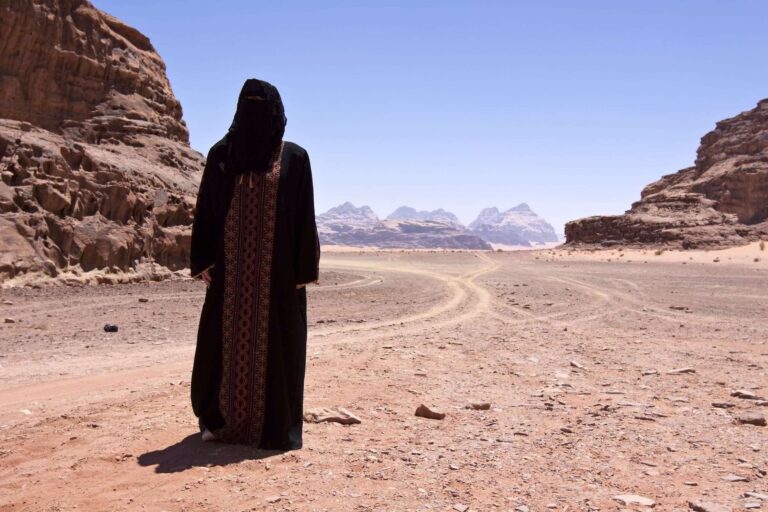

I am soon to travel to Saudi Arabia on a business trip. This will be my first time in Saudi Arabia so I would like to know whether female tourists have to cover up in Saudi Arabia or do the regulations apply to locals only?


I’ve always been fascinated by the culture in Saudi Arabia and wish to travel over there someday during my gap year. I was wondering - can a single female travel to Saudi Arabia? What do I need to be aware of?














